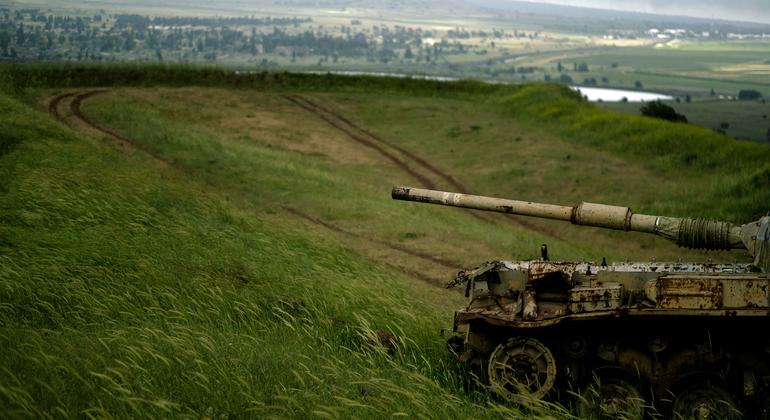The tense situation in the Middle East escalated further as reports emerged of intense exchanges between the Israeli military and the militant group Hezbollah based in southern Lebanon. Tor Wennesland, a prominent figure in the region, revealed in a post on X that he had met with Palestinian Prime Minister Mohamed Mustafa following these developments.
The Israeli military claimed to have carried out large-scale pre-emptive strikes, while Hezbollah asserted that they had completed and accomplished an attack. The conflicting claims only added to the already volatile situation in the area. In response to these events, UN Secretary-General António Guterres expressed deep concern over the significant increase in exchanges between the two sides.
The Secretary-General’s spokesperson released a statement emphasizing the risks posed to both the Lebanese and Israeli populations, as well as the threat to regional security and stability. Immediate de-escalation was called for in order to prevent further violence and loss of civilian lives.
Efforts to broker a ceasefire and secure the release of hostages were underway, with the United States, Egypt, and Qatar playing key roles in the negotiations. The focus was on reaching a comprehensive agreement between Israel and the militant group Hamas, with talks taking place in Cairo. Hamas was expected to send a delegation to discuss progress, although they were not directly participating in the negotiations.
One of the main sticking points in the talks was Israel’s insistence on maintaining a presence along the border between Egypt and Gaza, known as the Philadelphi corridor, as well as control over the road that divides the Gaza Strip. These demands complicated the negotiations and hindered progress towards a peaceful resolution.
Special Coordinator for the Middle East Peace Process, Tor Wennesland, stressed the importance of the ongoing talks in Cairo. He emphasized that reaching a ceasefire and securing the release of hostages were crucial steps in saving civilian lives, reducing tensions, and addressing the urgent needs of the population in Gaza.
A joint statement released by the UN Special Coordinator for Lebanon and the UN Interim Force in Lebanon called for all parties involved to refrain from further escalatory actions. The focus was on achieving a return to a cessation of hostilities and implementing UN Security Council Resolution 1701, which calls for a ceasefire and long-term peace settlement in the region.
Resolution 1701, adopted in 2006, emphasizes the need for a comprehensive, just, and lasting peace in the wider Middle East. It underscores the importance of all parties working towards a peaceful resolution and avoiding further violence and conflict.
The destruction in Hebbariyeh village in southern Lebanon served as a stark reminder of the devastating impact of hostilities across the Blue Line. The image of the damaged village highlighted the urgent need for a peaceful resolution to the conflict and the importance of prioritizing the safety and well-being of civilians in the region.
As tensions continued to rise and negotiations faced obstacles, the international community remained committed to facilitating a peaceful resolution to the conflict. The efforts of key stakeholders, including the United Nations and regional partners, were crucial in ensuring the safety and security of all those affected by the escalating situation in the Middle East.









